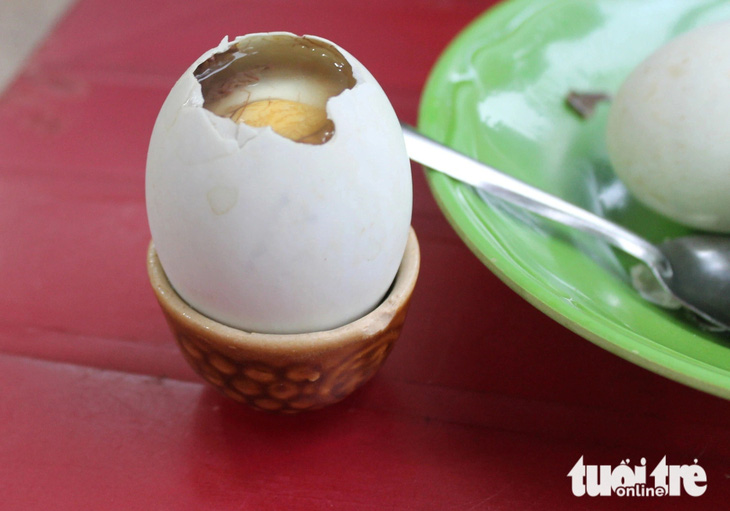Both locals and visitors recognize a stall in Bien Hoa City, Dong Nai Province, southern Vietnam, for its delicious hột vịt lộn (balut), which has a long-standing history and fame comparable to those in Ho Chi Minh City.
According to regular customers, Thu Ha stall has been the top destination for balut in Bien Hoa for the past 30 years.
Meanwhile, the owner said that the stall has been serving customers for nearly 42 years as a tradition she inherited from her mother.
Initially, the shop had neither a name nor a signboard, so customers often referred to it by the owner’s name, which eventually became synonymous with the place.
Located at 175 Phan Dinh Phung Street in Thanh Binh Ward, Bien Hoa City, some 30km from Ho Chi Minh City, Thu Ha balut stall was once so well-known that before the advent of Google Maps, customers could simply ask for Thu Ha at Thanh T-junction, and locals would easily guide them to the spot.
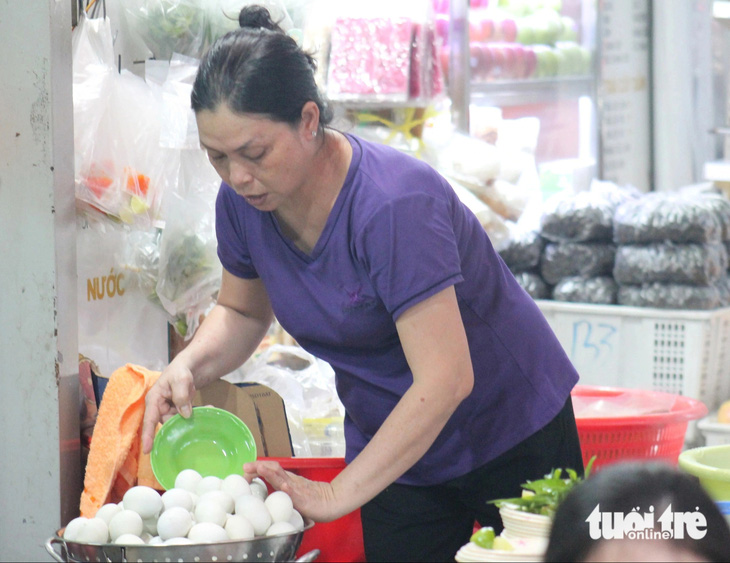 |
| The current owner of Thu Ha balut shop in Bien Hoa City, Dong Nai Province, southern Vietnam. Photo: To Cuong / Tuoi Tre |
A generational recipe
Thu Ha specializes solely in boiled balut, priced at VND12,000 (US$0.5) per egg, without offering additional side dishes like quail egg baluts or baluts stir-fried with tamarind that other places usually include.
The price of Thu Ha baluts is comparable to that of Kim Thao, a renowned balut spot in the wealthy Thao Dien quarter of Thu Duc City, Ho Chi Minh City.
Despite the price being among the highest in Bien Hoa, Thu Ha remains bustling from its opening time around 3:00-4:00 pm until 8:00 pm.
The owner consistently brings out trays of balut, covered with a towel to keep them warm.
It is estimated that the shop sells up to 5,000 eggs per day.
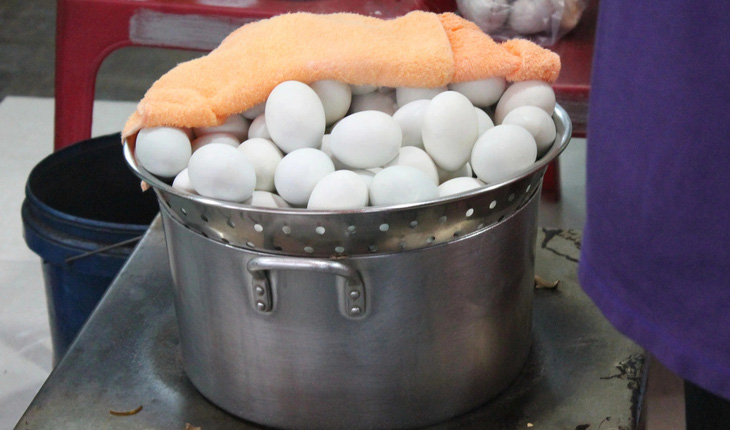 |
| Newly boiled baluts are covered with a towel to keep warm at Thu Ha balut shop in Bien Hoa City, Dong Nai Province, southern Vietnam. Photo: To Cuong / Tuoi Tre |
After finishing six baluts in a row at Thu Ha, customers may notice that their quality is remarkably uniform, with each egg tasting the same.
When one cracks open the ivory-white shell, they can find a perfectly balanced mixture of sweet juice, yolk, and an embryo that is neither too young nor too old.
Adding a touch of the restaurant’s mixture of salt, pepper, and lime will elevate the dish’s flavor.
While many might assume that making balut is straightforward and that variations come mainly from dipping sauces and side dishes, creating a batch of consistently delicious baluts is quite the art.
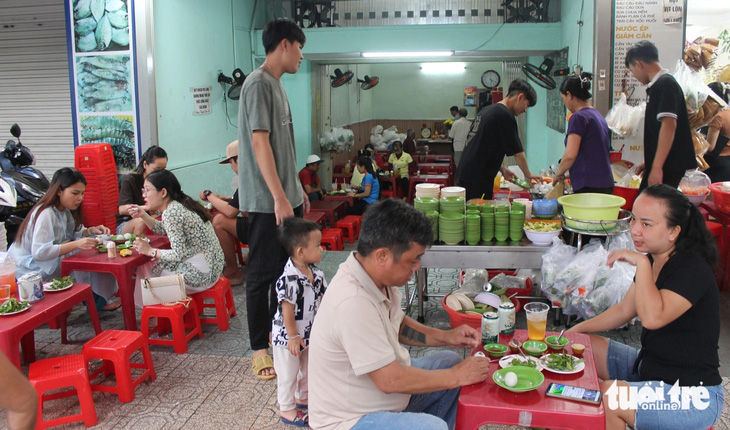 |
| Customers dine in at Thu Ha balut shop in Bien Hoa City, Dong Nai Province, southern Vietnam. Photo: To Cuong / Tuoi Tre |
Despite her busy schedule, the stall owner shared with Tuoi Tre (Youth) newspaper the secrets behind this cherished dish, passed down through generations.
The first key is in selecting the eggs: sourced from a long-standing trusted supplier, each egg is meticulously examined by machine to ensure quality consistency.
The next step involves boiling the eggs in coconut water and ginger, which imparts a distinct sweet flavor and enhances their appeal.
Lastly, the dipping sauce - an essential part of the dish - is made from a blend of ground pepper salt and chili juice, following a secret recipe that is a crucial element of Thu Ha’s distinctive taste and reputation.
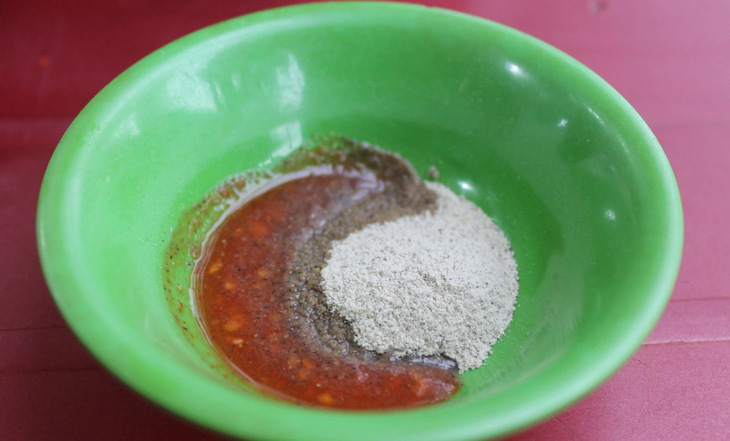 |
| A dipping sauce containing ground pepper salt, chili juice, and lime at Thu Ha balut shop in Bien Hoa City, Dong Nai Province, southern Vietnam. Photo: To Cuong / Tuoi Tre |
Price controversy
Despite its established reputation and daily busy scene without advertising, many Bien Hoa residents now express hesitation about visiting Thu Ha stall.
This reluctance stems from recent price hikes from VND6,000 ($0.24) per balut to VND8,000 ($0.32) per balut, and now to VND12,000 per balut, a cost many find steep compared to other options.
Additionally, the lack of free tissues for diners has been a long-standing complaint, yet the shop has maintained its business practices.
Social media groups have started recommending other places with similar quality but lower prices and additional amenities, like side dishes and tissues.
As a result, some former patrons who used to make the long trek to Thu Ha are now exploring alternatives.
Nevertheless, the stall retains a loyal customer base who believe that, after a long-standing history of serving Bien Hoa, Thu Ha’s balut remains worth the price.
Like us on Facebook or follow us on Twitter to get the latest news about Vietnam!



